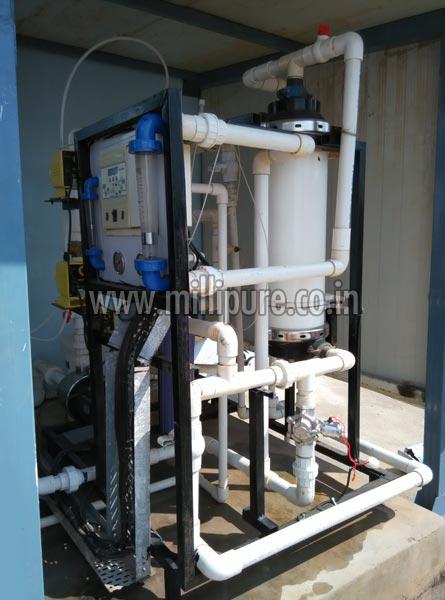- +91-9820672232, +91-9987702783
millipure@gmail.com
Everything You Need To Know About Ultrafiltration Plants
Posted by Admin on September, 08, 2021

When it comes to wastewater treatment, ultrafiltration (UF) equipment are often used to reprocess and recycle water by an Ultrafiltration plant manufacturer, which incorporates practically no solids whatsoever.
This article explains the definition of ultrafiltration, its implementations, and the industries that use it.
It is a type of membrane filtration wherein pressure or intensity gradients cause a disconnection through a semipermeable membrane to occur. The retentate is composed of suspended particles and high molecular weight soluble compounds, whereas the permeate is composed of water and low molecular weight substances.
Applications:
Ultrafiltration plant manufacturer India always particulates and macromolecules can be removed from raw water using ultrafiltration (UF), which can then be used to start producing pot. As a replacement for tertiary and secondary filter systems in water treatment facilities (coagulation, flocculation, sedimentation), or as a stand-alone system throughout remote areas with increasing population. Pre-treatment phases include a main (screening, flotation, and filtration) as well as some supplementary treatments.
As long as it is simple to recycle water, it requires very little processing. A semi-permeable membrane is used to expel physical solids from water while UF is considered necessary. Filters used in ultrafiltration remove solids from the water by capturing them and discarding them.
Other industrial uses include boiler or refrigeration tower treated water supplementation, pH modification for washing machinery, hardstands and vehicles and fire protection as well as toilet flushing, pollution control for construction works and concrete blending.
Recycling Benefits:
Water recycling not only ensures a reliable, locally controlled water supply but also has economic and environmental benefits. Providing an additional source of water, water recycling reduces the amount of water that is diverted from vital, sensitive ecosystems, allowing plants, wildlife, and fish to survive. Fresh water and ecological function can be negatively affected by a lack of sufficient flow due to deflection for agricultural, urban, and industrial applications.
Recycling water allows users to meet their needs while saving significant amounts of fresh water for the environment. Other advantages to the environment also provide a reduction in wastewaters and a decrease or prevention of pollution possibilities.
There is a growing demand for fresh water from the ultrafiltration plant, which necessitates the extraction and treatment of more water, sometimes over long distances, which can be consumed. As water is removed from a groundwater source, the water level drops, increasing the amount of energy required to pump it up to the surface. Aquifer pumping and long-distance water transportation require more energy than onsite or neighbouring water recycling.
Industries Using It:
Ultrafiltration can be used to recycle water in industry sectors that use large amounts of water or release highly toxic effluents.
It's a long list that includes industries like the chemical and steel industry sectors as well as paper mills and pulp mills as well as the food & beverage industry, which includes sodas and canned foods.
Final Words:
Additionally, ultrafiltration is used for repurposing flow or adding value to later products. Sometimes, ultrafiltration (UF) is often used in reverse-osmosis plants as a prefiltration step in order to protect the reverse osmosis. Reverse osmosis membranes can be clogged by particulate matter, and ultrafiltration is an excellent way to minimize the silt concentration index of the water.
This entry was posted on September, 08, 2021 at 11 : 20 am and is filed under Ultrafiltration Plant. You can follow any responses to this entry through the RSS 2.0 feed. You can leave a response from your own site.
Search
Category
- Steam Generator ( 2 )
- Water Treatment System ( 2 )
- UF Systems ( 1 )
- Water Treatment Plant ( 3 )
- Vent Filter ( 1 )
- RO Plant ( 2 )
- Multi Column Distillation Plant ( 4 )
- Waste Water Recycling System ( 3 )
- Purified Water Generation System ( 2 )
- Ultrafiltration Plant ( 2 )
- CIP System ( 1 )
- Sand Filter ( 1 )
- Water Softener Plant ( 2 )
Recent Posts
- The Ultimate Guide to Multi-Column Distillation Plant
- Wastewater recycling system – Its significant uses for water purification
- Reasons Every Home Must Have a Water Softener Plant
- Water Softener Plant in India – Its assessment process before buying it
- Multi-Column Distillation Plant: Making Liquid Purification Easy and Convenient

Leave a Comment